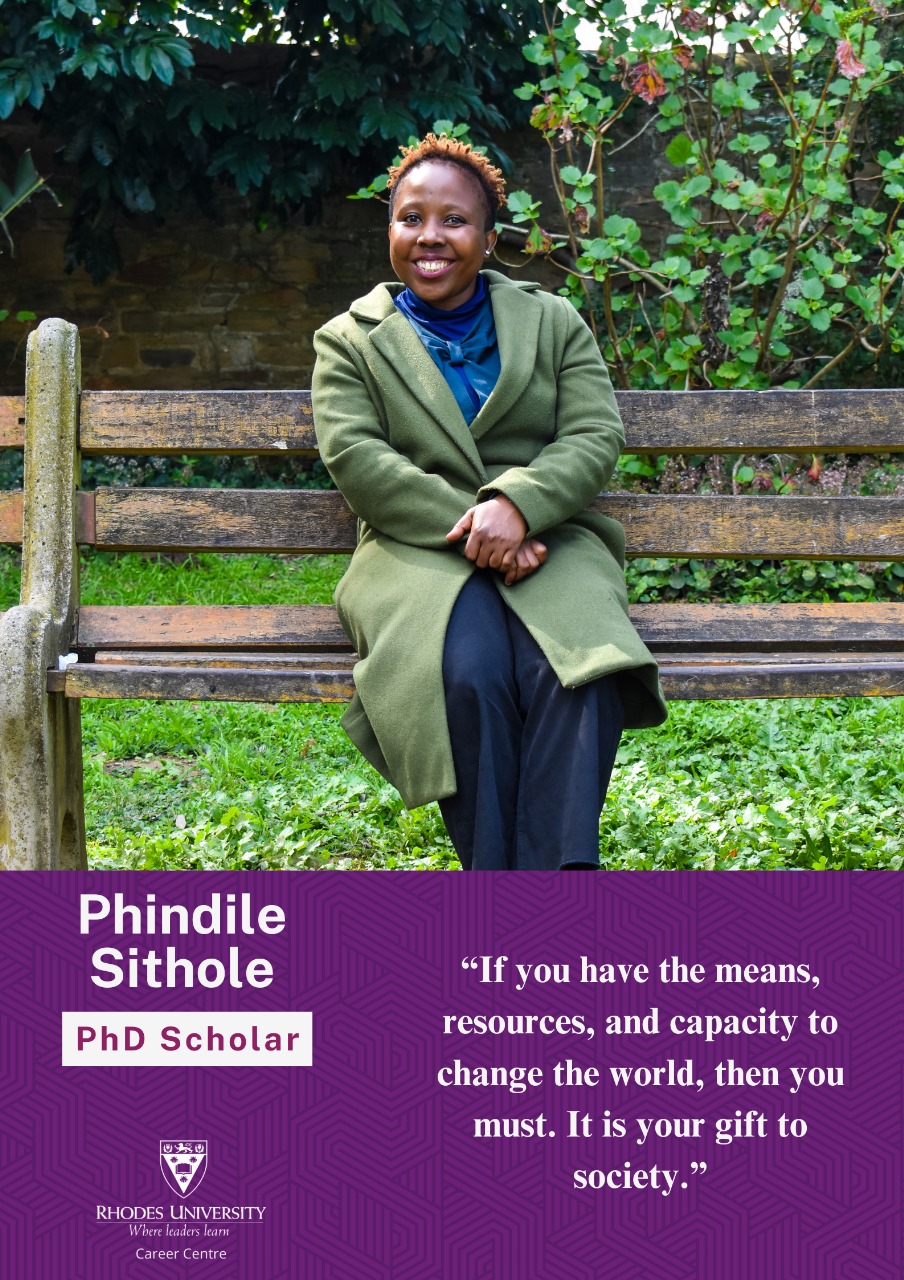
[#BOSSMondays Feature] From Garden to Global Impact: Phindile Sithole's Youth-Led Revolution in Agro-Ecology
Date Released: Mon, 18 August 2025 17:34 +0200By: Mo Senne (Senior Communications Officer)
“If you have the means, resources, and capacity to change the world, then you must. It is your gift to society.” – Phindile Sithole.
In a world grappling with the twin challenges of youth unemployment and food insecurity, a new generation of leaders is emerging with innovative solutions. One such leader is Phindile Sithole, a PhD scholar at the Environmental Learning Research Centre (ELRC) at Rhodes University. Her work is at the forefront of a groundbreaking initiative, demonstrating how a childhood passion for growing food (inspired by her grandmother) can be cultivated into a powerful, youth-led movement for change. Nominated for her exceptional leadership, Phindile is a key member of the ELRC's YOMA (UNICEF Youth Open MarketPlace) Youth-Led Innovation Team, where she is helping to drive and lead the co-design of "Co-Engaged Learn-to-Earn Pathways" for unemployed young people.
The conceptualisation and development of these learning pathways began as an operational research project in collaboration with the UNICEF ELRC and DUCT. The core idea was to leverage digital solutions to create accessible learning-to-earning opportunities for youth, with Phindile's contributions focusing on the Eastern Cape and the uMngeni Catchment areas. Phindile took a leadership role in one of four key pathways: agro-ecology. Her work was to collaboratively map out learning pathways by supporting a team working with five youth groups from the Eastern Cape, ensuring the courses were relevant to their preferred practices and local context. This co-design process culminated in a full Agro-Ecology course with 10 micro-credentials, with Phindile and her team leading the course orientation and its youth-led innovation dimensions.
What makes Phindile's leadership particularly notable is her hands-on, adaptive approach. She taught herself to design online courses using Articulate 360 and how to co-create video materials, ensuring the content was engaging and accessible. The team also created a QR code "quick access tool" to simplify sign-ups for the free courses, addressing a key barrier to entry for many young people. Once the courses were developed, she led the crucial pilot phase in 2025, including participants from KwaZulu-Natal and the Eastern Cape. This pilot was a learning experience, with success hinging on the young participants' self-directed learning and the consistent support from the research team. Phindile meticulously managed the administrative processes, from ethical considerations to logistics and impact activities, and documented lessons learned to improve the courses.
The pilot highlighted key challenges, such as a disparity in digital literacy and poor network connectivity. Phindile and her team observed that while younger participants easily navigated the online platform, older participants and some adults struggled with basic tasks, underscoring the need for ongoing, accessible support. This recognition led to a suggestion for in-person check-ins for those struggling with the digital format. Despite these hurdles, the project is already showing significant promise. As of early August 2025, just after the course went live, 49 youth had enrolled from five different provinces across South Africa, demonstrating the program's national traction. The courses have been met with positive feedback, and the digital training model is considered a unique and valuable contribution to the YOMA platform. The project's success is not just in numbers but in the real-world stories of young people like Celiwe Mahlangu, who, inspired by her neighbour, used the course to transition from traditional farming to a more sustainable, chemical-free approach.
Phindile’s work extends beyond development and piloting. She has actively engaged in strengthening agro-ecology partnerships. She has presented the program at national and provincial forums, including the DSI/NRF Community of Practice Forum and the KSI Festival. Her leadership is set to continue as she collaborates with Dr. Wilma van Staden, and fellow scholars Angela Chappel, Maletje Mponwana, Athi Tabalaza and other colleagues in the YOMA project to roll out a training-of-trainers (ToT) program, ensuring the sustainability and scalability of the initiative.
Phindile Sithole's journey from a childhood inspiration to a leader in youth-led innovation is a testament to the power of combining personal passion with purpose. “I know that I can’t change the whole world, but I can make a meaningful impact around me,” she said. Her work teaches young people how to farm and empowers them to cultivate a new future, one seed at a time.
See our previous BOSS Student here
Nominate a BOSS Student here
Source:The Division of Communications & Advancement
